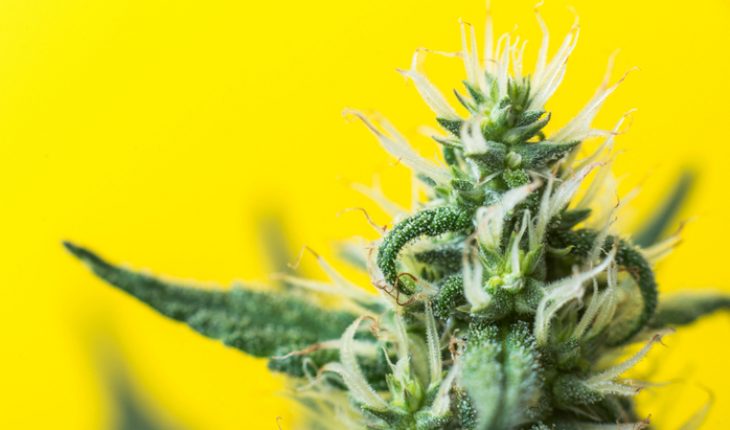A constituent of cannabis known as cannabidiol could hold promise as a new class of treatment for psychosis, according to King’s College London research showing significant benefits in a clinical trial.
The main psychoactive compound in cannabis is delta-9-tetrahydrocannabinol (THC), which is responsible for many of the drug’s harmful effects, such as paranoia and anxiety. However, previous research at King’s College London has shown that its second major constituent, cannabidiol (CBD), has broadly opposite effects to THC, suggesting that it might be useful as a treatment in mental health.
To date, a few case studies have pointed to the potential of CBD as a treatment for psychosis. This new research – published in the American Journal of Psychiatry – is the first placebo-controlled trial of CBD in patients with psychosis.
Antipsychotic drugs have been the first line treatment for psychosis for the last 60 years. However, they are often only partially effective and can be associated with serious side effects.
In this new study, funded by GW Research and the National Institute for Health Research (NIHR) MaudsleyBiomedical Research Centre, 88 patients with psychosis received either CBD or placebo for six weeks, alongside their existing antipsychotic medication. Before and after treatment, researchers assessed their level of symptoms, functioning, and cognitive performance, while the patient’s psychiatrist rated their condition overall.
Patients treated with CBD had lower levels of psychotic symptoms than those who received a placebo, and were more likely to have been rated as ‘improved’ by their psychiatrist. There were also trends for improvements in cognitive performance and in their level of functioning. Treatment with CBD was not associated with significant side effects.
Professor Philip McGuire, the lead author, from King’s College London’s Institute of Psychiatry, Psychology & Neuroscience (IoPPN), said: ‘Conventional antipsychotic drugs act by blocking dopamine receptors. However, dopamine is not the only neurotransmitter whose function is altered in psychosis, and in some patients dopamine function may be relatively normal. We need new classes of treatment that target different neurotransmitter systems.
‘Although it is still unclear exactly how CBD works, it acts in a different way to antipsychotic medication, and thus could represent a new class of treatment. The study indicated that CBD may be effective in psychosis: patients treated with CBD showed a significant reduction in symptoms, and their treating psychiatrists rated them as having improved overall.
‘Moreover, CBD was not associated with significant side effects. This is also potentially important, as patients may be reluctant to take antipsychotic medication because of concerns about side effects.’
Professor McGuire added: ‘The next steps are to carry out larger trials of CBD to confirm these initial promising findings, and to assess the effectiveness of CBD in other types of patient. Our research group at King’s has recently been funded by NIHR to conduct a UK-wide trial of CBD in people at high risk of developing psychosis.’
- Gut microbiome could delay onset of type 1 diabetes - 3rd April 2025
- The da Vinci 5 Robot Is Set To Transform Bariatric Care: - 31st March 2025
- Beyond money: the hidden drivers fuelling child food insecurity - 31st March 2025







Here’s a question: What does that to you, when you see the topic “Cannabidiol could treat psychosis?” in the Hippocratic Post, and another topic asking: “Could Cannibis fuel psychosis”? Without reading the articles, what does this little peace of info do to you? It does something wild and exciting to me, but I’m not going to spill my beans yet – I want to see what it does to other people first.